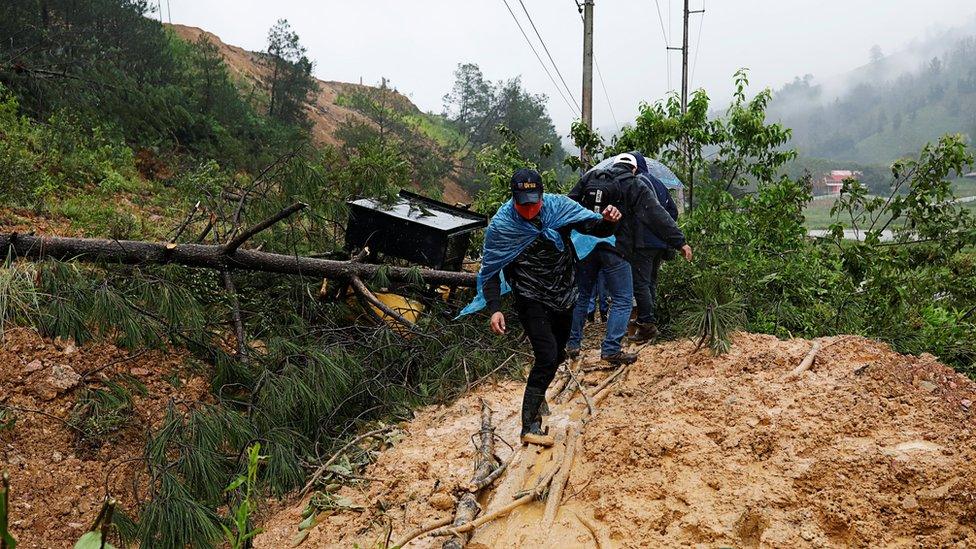Hurricane Iota: Category Five storm heads for Central America
- Published
Heavy rains as Hurricane Iota nears land
Hurricane Iota has strengthened as it roars towards Central America, less than two weeks after another devastating storm struck the region.
With winds of up to 160mph (260km/h), it is now a category five storm - the strongest on the Saffir-Simpson scale.
Iota made landfall on Nicaragua's remote eastern coast on Monday evening local time.
"What's drawing closer is a bomb," said the president of neighbouring Honduras, Juan Orlando Hernández.
Iota is the strongest Atlantic hurricane of the year and only the second November hurricane to reach category five - the last was in 1932.
In a joint press conference, Mr Hernández and Guatemala's President Alejandro Giammattei said Central America was the worst affected region in the world by climate change, and highlighted the damage caused by Hurricane Eta earlier in the month.
Thousands lost their crops when that storm hit, and parts of Central America remain water logged.
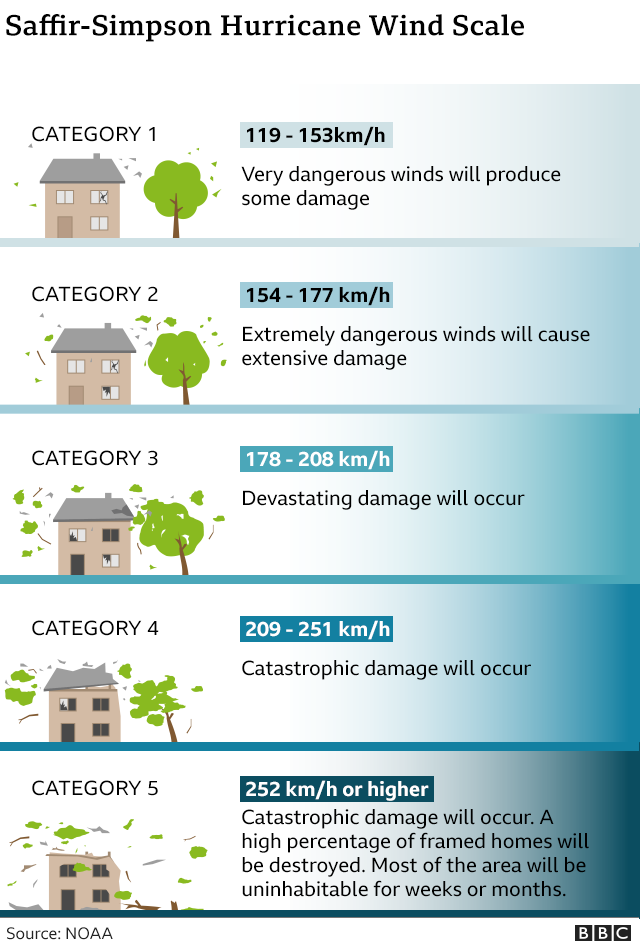

Before reaching Central America the storm moved past the Colombian island of Providencia in the Caribbean, cutting off electricity.
The country's President Iván Duque said the island could have been hit badly by the storm and stressed there had been "very poor" communication after it struck.
The NHC has warned that heavy rainfall from Iota could lead to "life-threatening flash flooding and river flooding across portions of Central America".
Iota already caused flooding in Cartagena, a popular tourist destination on Colombia's Caribbean coast.
Storm Iota heads towards Central America
The effect of the rains could be particularly devastating in areas already drenched by Hurricane Eta two weeks ago.
Eta left at least 200 people dead. The worst-hit area was Guatemala's central Alta Verapaz region, where mudslides buried dozens of homes in the village of Quejá, with some 100 people feared dead.
At least 50 deaths were reported elsewhere in Guatemala.
Honduras, Guatemala and Nicaragua have evacuated residents living in low-lying areas and near rivers in the Atlantic coastal region which Iota is expected to hit.
A resident of Bilwi, a coastal town in Nicaragua, said some locals were refusing to leave their homes for fear of catching coronavirus in shared shelters.
"Some of us prefer to stay and die in our homes. There has never been a repeat hurricane in such a short time, but what can we do against the force of God and nature," Silvania Zamora told AFP news agency.
"We are worried, nervous. Psychologically we are not doing well, because losing our things and starting over is not easy. Some of us have old little houses and we risk losing everything," she added.
In Honduras, the country's second city and its industrial hub, San Pedro Sula, is bracing for major flooding.
'Storm Eta ruined my home'
- Published16 November 2020
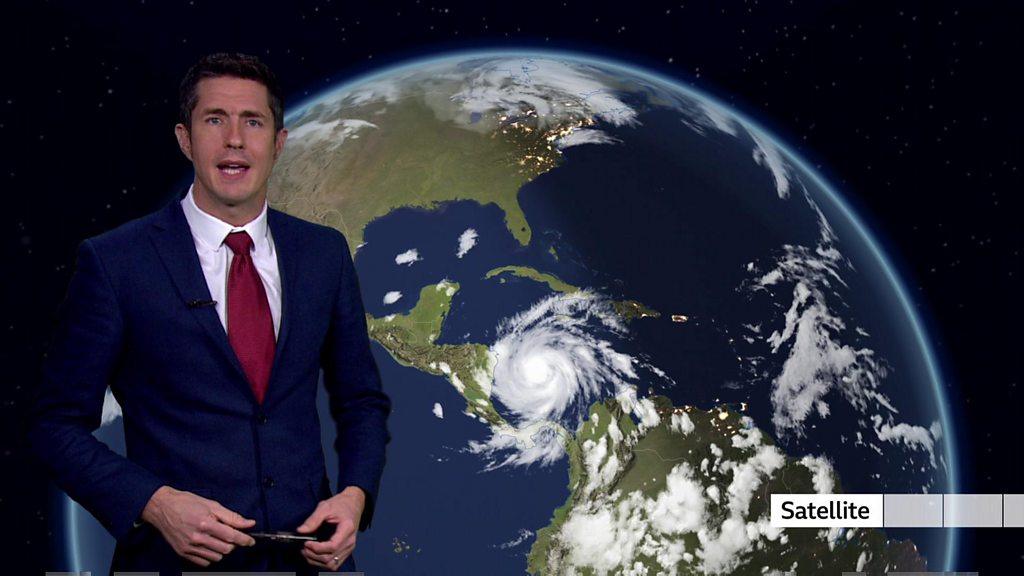
- Published15 November 2020
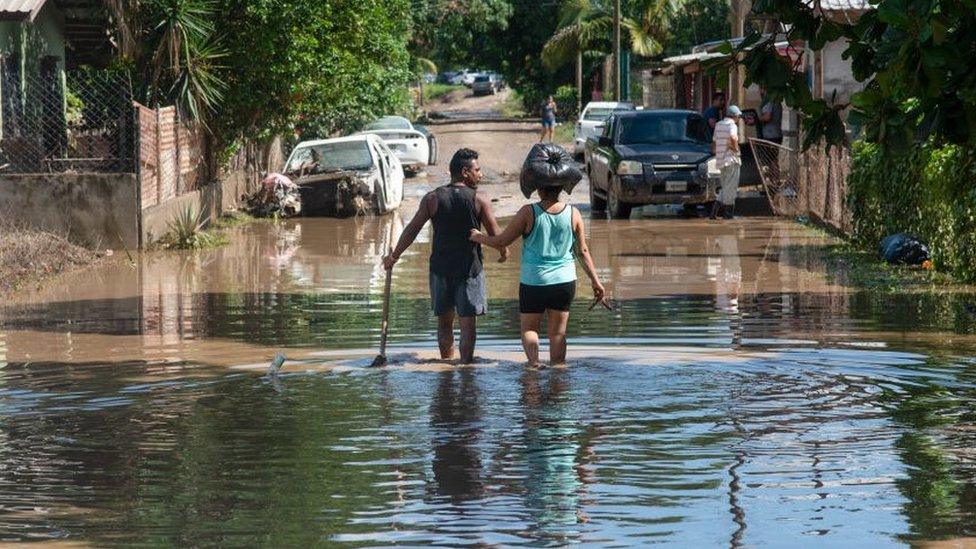
- Published11 November 2019
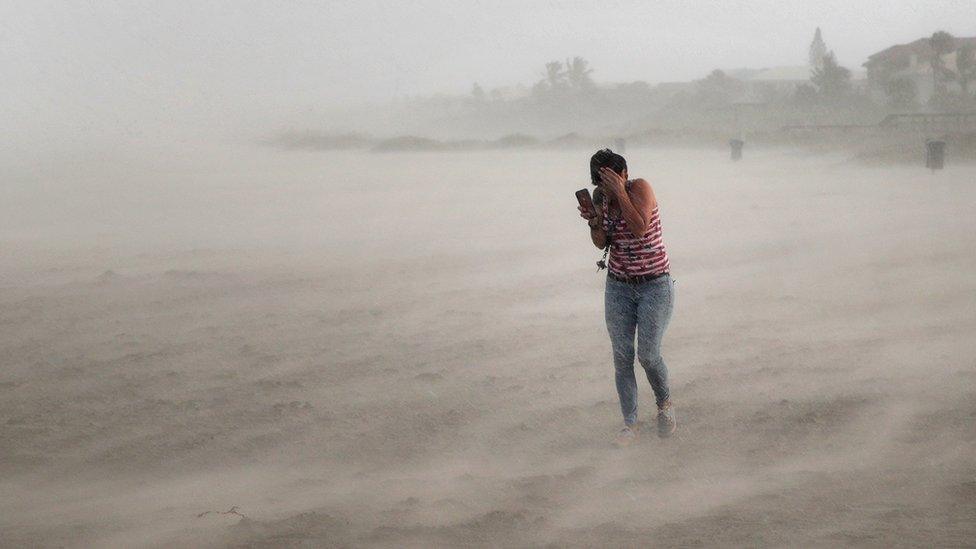
- Published10 November 2020
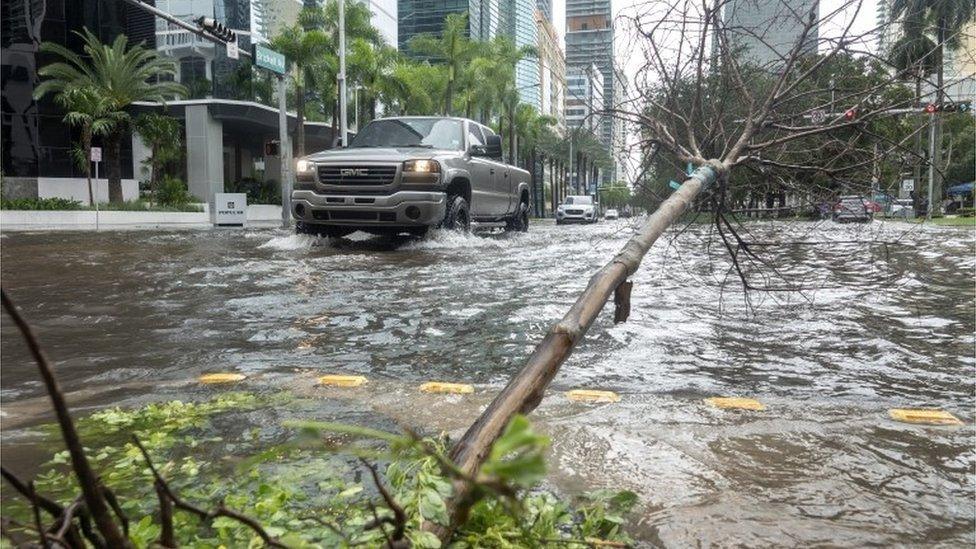
- Published6 November 2020
